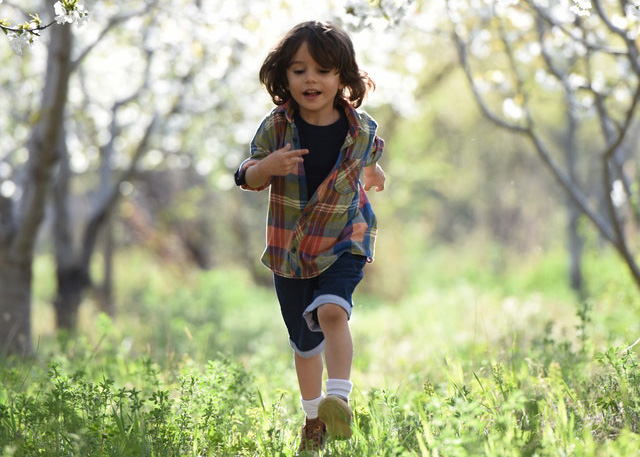As we try to escape a pandemic and move into summer, some of us are scrambling trying to figure out if camps will open their doors or if we are the camp. With the surplus of stay-at-home orders over the past few months and figuring out the ropes on how to be a teacher (on top of the other six roles), more snacks and couch time are readily available.
Still, it’s important for children to keep moving. Health standards state that children and adolescents between the ages of 6 and 17 should be active for at least one hour daily. Kids under 6 should be physically active throughout the day, according to the Centers for Disease Control.
Since it can be excruciating to push your babies into action (how many times can you ask them to clean their room?), turning a mundane work-out routine into play time can make all the difference. It also allows you to spend quality time with your mini-me while getting the added benefits of good health.
Here are some playful routines to keep the heart and body healthy:
Hop Scotch
The one-legged hops improve balance, core stability and coordination. Get creative in jumping patterns. To add a fun challenge, you can time each turn to see who’s the fastest (without falling down).
Bonus activity: Get some art time in by drawing your hopscotch squares with chalk on the sidewalk beforehand!
Shuttle Drill Race
For a two player race: Place three rocks or objects in a line five yards apart from each other, and another three rocks parallel to the others. Each player starts at the first rock, runs to the second, goes back to the first and then straight to the third before going back to start. The winner reaches home base first.
The shuttle drill race enhances speed, agility, quickness and cardio-respiratory health. Give yourself a few rounds!
Leap Frog
One person squats down low, pressing their hands onto the floor for added support, while the other player stands behind the squatter and places their hands gently on the squatter’s back. The jumper leaps over and lands in front in the squatting position. The first squatter then becomes the jumper, repeating the exercise as many times as desired.
This heart-healthy exercise develops power and strength, especially targeting the leg muscles.
Sit-up High-Five
Two partners lie on their backs facing each other, knees bent, foot to foot. Each person interlocks their feet around the other’s ankles, locking each other for support. Complete a sit-up, high five your partner and lower back down. Try for 12-20 reps of 1-3 sets.
Core strength and stability is a key component of proper movement and functionality.
Bear Crawl/Crab Walk
Create a start and end point, with each person beginning at the starting point. From a table position on all fours (shoulders over wrists and hips over knees), tuck your toes on the floor and lift your knees off the ground, keeping the belly button pulled to the spine to engage the core. Walk on all fours (bear crawl) to the ending point, then flip around so your palms are planted behind you, belly face up, with your feet grounded on the floor facing the beginning point. With knees up toward the ceiling and your bum off the floor, crab walk back to start. The winner makes it home first.
These fun crawls build strength, stability and endurance.
Plank Hop
With the parent taking a push-up position, the child hops over (depending on how tall they are it can be over the torso or over the feet). Once the jump is complete, the parent lifts their hips up into the air, creating a bridge for the child to crawl under. Try for 8-12 reps.
Planks benefit core strength and stability. Hops and crawls develop strength, power and coordination.
Wheel Barrow
With the parent standing behind the child, the child places their hands on the floor and the parent lifts the child’s feet. The child takes 10 hand steps forward — on the 10th hand step the parent completes 10 squats, continuing to hold the child’s legs. The wheel barrow works on core and upper arm strength and stability, while squats focus on the legs and glutes. If you have older kids, it is certainly an arm work out, too!
Try all the exercises circuit-style by completing one round of each exercise and then repeat for a total of 1-3 rounds.
The most important thing to remember is … have fun! The greatest influence in a child’s life is you! Being a healthy role model and a part of your child’s fitness journey can create a positive mental attitude toward exercise and health. Don’t be afraid to be silly, laugh and enjoy the moment.

